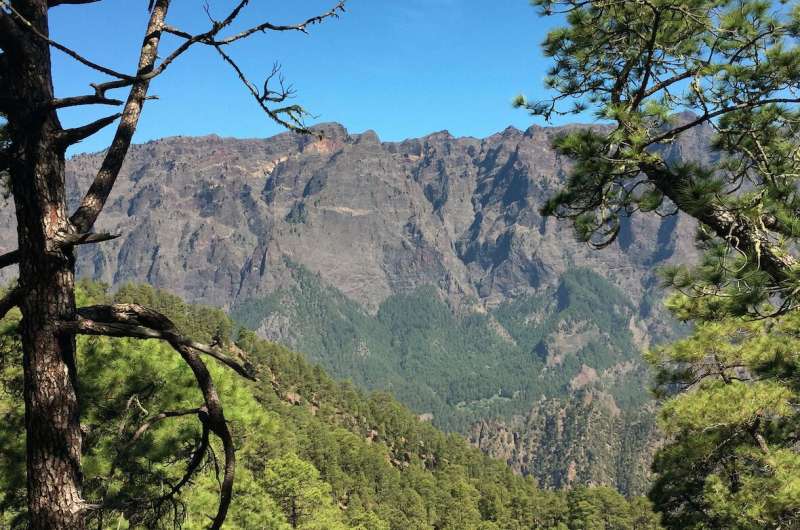Stressed-out volcanoes more likely to collapse and erupt

An international study led by Monash scientists has discovered how volcanoes experience stress. The study, published today in Scientific Reports, has implications for how the world might be better protected against future volcano collapses.
Volcanic collapse is the worst-case scenario during volcanic crises. It can trigger dangerous tsunamis or devastating pyroclastic flows (for example Mount Saint Helens).
"But, these events are very difficult to predict because we often don't know what is happening inside active volcanoes, and what forces might make them unstable," said lead study author Dr. Sam Thiele, a recent Ph.D. graduate from the Monash University School of Earth, Atmosphere and Environment.
"Research on volcano growth helps us to understand these internal processes and the associated forces that could trigger a deadly collapse or eruption," he said.
The research team used drones to create a cm-resolution map of the internal structure of a now dormant volcano on La Palma in the Canary Islands, and measured the width of 100's of thousands of cracks through which magma flowed during past eruptions.
This allowed them to estimate the forces acting within the volcano, and show that these slowly build up over time, causing the volcano to become 'stressed' and potentially unstable.
By measuring the width of cracks in the volcano through which magma was transported they were able to estimate the forces involved, which helps to predict future volcanic eruptions.
The geological features that the research team mapped are formed when molten intrusions, called dykes, solidify to form a framework inside what is otherwise a comparatively weak structure comprising mostly layers of lava and ash.
"This is one of the first studies to look at the long-term effects of magma movement within a volcano," said study co-author Professor Sandy Cruden, from the Monash University School of Earth, Atmosphere and Environment.
"We found that volcanoes gradually become 'stressed' by repeated movement of this magma, potentially destabilizing the whole volcano, influencing future collapses and eruptions," he said.
More information: Samuel T. Thiele et al. Dyke apertures record stress accumulation during sustained volcanism, Scientific Reports (2020). DOI: 10.1038/s41598-020-74361-w
Journal information: Scientific Reports
Provided by Monash University




















